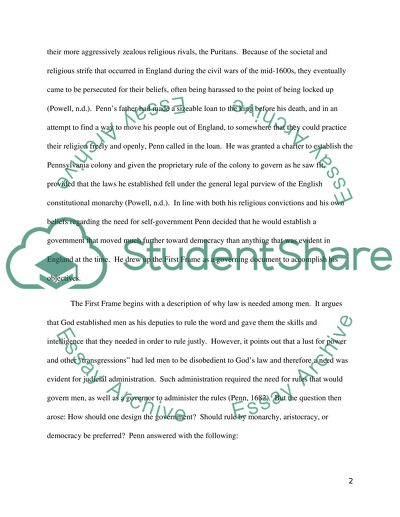Cite this document
(“William Penn and the charter of privlidges Research Paper”, n.d.)
Retrieved from https://studentshare.org/family-consumer-science/1420555-william-penn-and-the-charter-of-privlidges
Retrieved from https://studentshare.org/family-consumer-science/1420555-william-penn-and-the-charter-of-privlidges
(William Penn and the Charter of Privlidges Research Paper)
https://studentshare.org/family-consumer-science/1420555-william-penn-and-the-charter-of-privlidges.
https://studentshare.org/family-consumer-science/1420555-william-penn-and-the-charter-of-privlidges.
“William Penn and the Charter of Privlidges Research Paper”, n.d. https://studentshare.org/family-consumer-science/1420555-william-penn-and-the-charter-of-privlidges.


